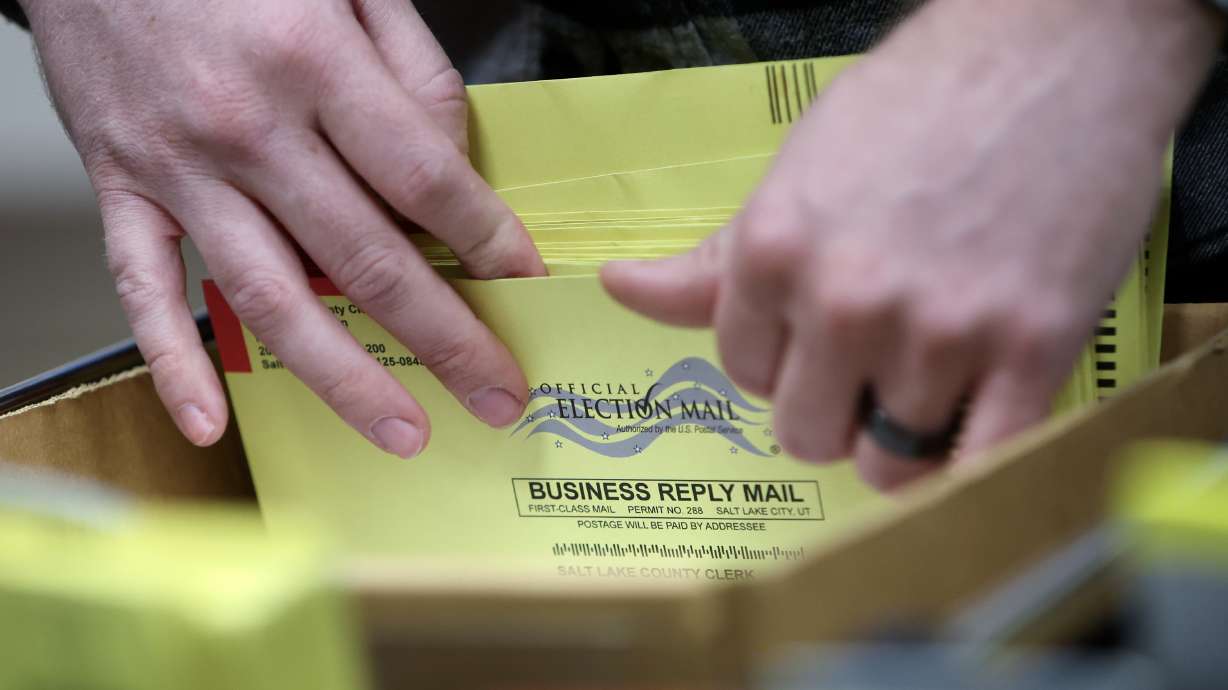Estimated read time: 3-4 minutes
This archived news story is available only for your personal, non-commercial use. Information in the story may be outdated or superseded by additional information. Reading or replaying the story in its archived form does not constitute a republication of the story.
SALT LAKE CITY — Lt. Gov. Deidre Henderson on Wednesday advised county clerks that cast vote records and other election materials are not public records, as the losing Republican primary gubernatorial candidate continued calls to see those records.
Henderson issued a public letter to county election officials, telling them that "cast vote records, tabulator information, ballot images, tabulator tapes, backup project databases, and other election materials" considered "election returns" are not subject to Utah's Government Records Access and Management Act.
"Your position of public trust, and the law itself, requires you to maintain the highest integrity by steadfastly adhering to statute and well-established policies, procedures and rules," Henderson wrote. "The remedy for any individual wishing to contest an election is not through GRAMA, but through the courts."
Henderson serves as the state's top election official in her capacity as lieutenant governor, but appointed former Lt. Gov. Greg Bell as an independent adviser to oversee the gubernatorial race as she seeks a second term as Gov. Spencer Cox's running mate.
The letter was in response to multiple requests for guidance by several county clerks, after they received public records requests for election records related to the June 25 primary election, a spokesman for Henderson told KSL.com.
While the election records sought don't contain the personal information of voters, they include details that could be used to determine how someone voted. Utah's election law exempts election records from being subject to records requests.
Henderson's letter cited a 2022 lawsuit by Jennifer Orten and Sophie Anderson. The pair sued several counties and the Utah County Board of County Commissioners after their public records requests for election returns was denied. Judge Derek Pullan dismissed the case with prejudice, though that ruling has since been appealed.
"In the hierarchy of records maintained by the government, few are more sensitive than the election materials plaintiffs seek," Pullan wrote in his ruling. "By restricting access to these records, the election code preserves the integrity of both elections and election contests. In the absence of these restrictions, the door to fraud and corruption would be left wide open."
State Rep. Phil Lyman, R-Blanding, a gubernatorial candidate who trails Cox in the Republican primary by more than 38,000 votes as of Wednesday afternoon, has sought to cast doubt on Cox's candidacy by questioning the validity of the signatures he collected to qualify for the ballot and has asked to see the ballots. Cox was projected the winner of the GOP primary shortly after polls closed last Tuesday.
"Why can't a member of the public walk into the vault and pull 10 random boxes of ballots?" he asked Tuesday on the social platform X.
Although Lyman trails Cox by a significant margin, he has delayed conceding to the governor. In a video shared Wednesday, Lyman said, "The game's not over."
"We're waiting for the votes to come in," he continued. "I've said that we're going to validate to the best of our ability, the results. We're looking, we're doing statistical analysis as we speak on all the counties' results, and those results are important to me."
Some ballots are still outstanding, but the vast majority of votes are accounted for more than a week past the primary. Lyman and some of his supporters have also floated the idea of running a write-in campaign against Cox in the November general election, though Utah has a so-called "sore loser" law that prevents the losers of party primaries from running as an independent or write-in candidate.









